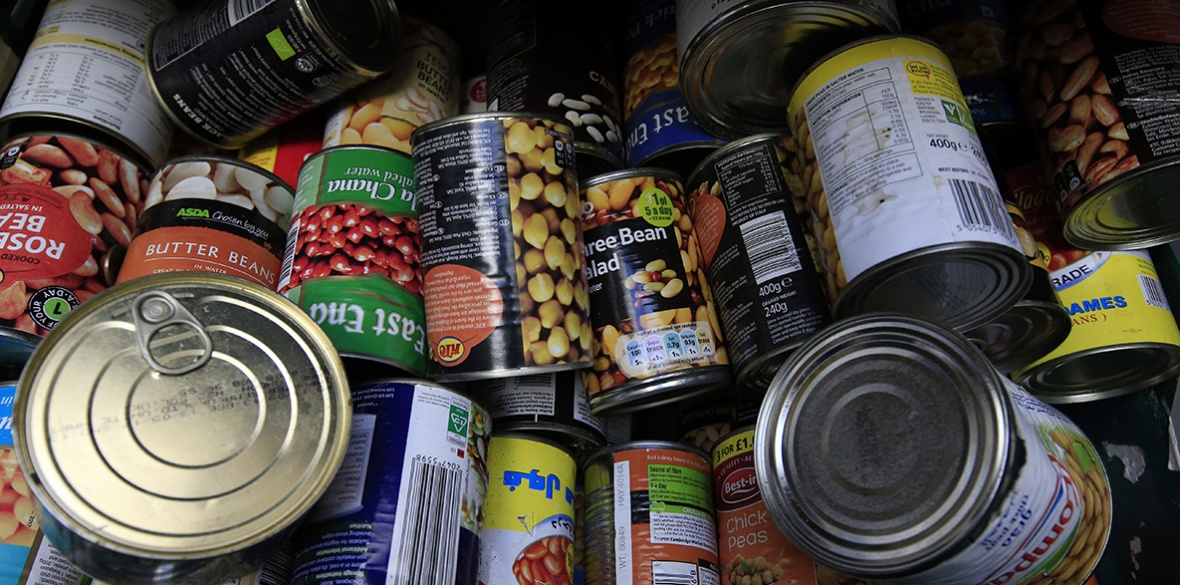This is the last article you can read this month
You can read more article this month
You can read more articles this month
Sorry your limit is up for this month
Reset on:
Please help support the Morning Star by subscribing here
MORE people are going hungry because of rising costs, with four million children living in homes without adequate access to food, research reveals.
A new poll by the TUC has found that one in seven people across Britain are skipping meals or going without food, rising to one in four in some parliamentary constituencies.
Birmingham Ladywood has the highest number of people at nearly 30 per cent, followed by Dundee West, Glasgow and Rhondda.
In the Cities of London and Westminster, well over a fifth of local people are missing out on meals.
The proportion of people across Britain skipping meals is the same for people in work and people out of work.
More than half of the population are cutting back on heating, hot water and electricity, the TUC also found, with the figure rising to one in three for those living in the Cities of London and Westminster.
And in a separate report, the Food Foundation reveals that one in four households with children have experienced food insecurity in the past month, affecting an estimated four million children.
This is up more than 50 per cent since April and is the highest level since the group began tracking the levels at the start of the pandemic.
Larger families are more likely to experience food insecurity, with the group warning that it could be caused by them benefitting less from cost-of-living support payments.
The Food Foundation said the data shows that “an unacceptable number of children are not guaranteed access to the food they need and not enough is being done to specifically target support at children at risk of food insecurity.”
Both research comes in the same week the government reduced long-term support for energy bills, with the price guarantee now set to end in April.
National Education Union joint general secretary Kevin Courtney said the government is “plunging more families into insecurity and at an alarming rate.”
He said that unless the government “get a grip and take action,” millions of children will go hungry this winter.
“It is clear that the government must invest in school food and roll out free school meals for all children in primary school to put money back in parents pockets and ensure that all children get a hot, nutritious meal every day,” Mr Courtney said.
“The government must also finally commit to increasing benefits in line with inflation to show some intent in preventing and epidemic of hunger this winter.”
The TUC said its findings are a “stark reminder of the cost-of-living pressures facing households” and called for an uprate to universal credit, benefits and pensions in line with inflation immediately.
It also demanded the government impose a much higher windfall tax on oil and gas companies, get behind trade unions, give key workers a cost-of-living proofed pay rise and raise the minimum wage to £15 an hour.
TUC general secretary Frances O’Grady said: “Millions of families are struggling to cover even the basics, and now face huge uncertainty over their energy bills after the Chancellor said support may end in April.”
She said the union body’s polling “lays bare Britain’s cost-of-living emergency.”
“Instead of giving bungs to bankers, ministers need to get money into people’s pockets,” Ms O’Grady said.
“That’s the best way to boost spending in local economies and to deliver lasting growth.”
The Office for National Statistics will reveal the latest increase in in the cost of living for households today.
Experts have predicted that inflation will have returned to double figures due to rising food prices.
The figures will be a warning to the Treasury as they are normally used to decide on increases for several key policies such as the triple-lock pension commitment and benefits rewards.
But Downing Street indicated yesterday that ministers could ditch their commitment to the triple lock as new Chancellor Jeremy Hunt looks for more cuts to fill the government’s financial black hole.
It also refused to rule out health and social care services cuts.
The Resolution Foundation warned that spending cuts could be as deep as those after the 2009 financial crisis and that even middle-income families may be unable to pay energy bills next year after the support package U-turn.
Chief executive Torsten Bell said on BBC Radio 4’s Today programme there was a fiscal black hole of around £30 billion even after the government scrapped nearly all of its mini-budget.
Shadow chancellor Rachel Reeves said Mr Hunt was “a key architect in austerity season one” and is now trying to impose “austerity season two.”












